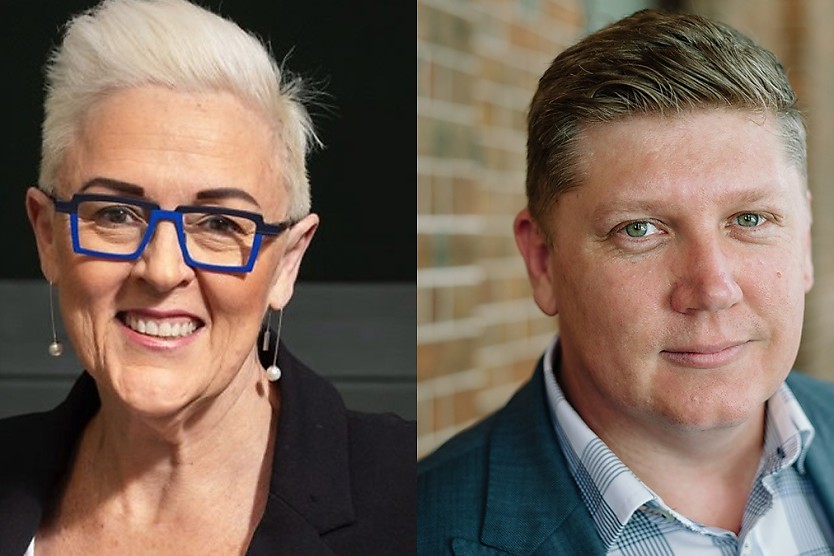Is the disdain for ‘wokeness’ affecting workplace DEI?
SHARE THIS ARTICLE

Conjured-up moral panics derived from the oversaturation of the term “woke” have resulted in the ongoing culture war bleeding into the workplace – as some politicians, executives, and workers continue to vehemently express their disdain for DEI.
The term woke, or wokeness, has merged itself into the colloquial language of politicians, pundits, and everyday Australians – and not as a term of endearment either. Instead, the word is uttered in a vitriolic manner to often describe things the user deems as “overtly progressive”.
“Woke” is now rated E for everything, as the word, which often can’t be defined by the user, has been attached to anything and everything that doesn’t fit into a prescribed traditional mould. The loose use of this term has led to some rather perplexing examples of instances or subjects being labelled as “woke”.
A personal favourite was a variety of New Zealand politicians referring to sushi and quinoa – which were supposedly being supplied as a part of a healthy school lunches program – as “woke food”.
Looking past the sheer absurdity of making such claims, this example is just one of the many instances where culture war buzzwords have seemingly become entrenched in the political domain.
As the culture war discourse becomes much more elevated and hyperbolic, the debates are no longer just occurring on X (formerly Twitter) threads; rather, they are extending into major components of our societal processes – with the workplace being no exception.
Of course, the implementation of diversity, equity, and inclusion (DEI) into the workplace has never been a smooth process, with it often being shrouded in contentious debate. However, the previous rebuttals to its application in the workplace have now been hijacked by blatant racism, ignorance, and maliciously crafted facades.
No example is more evident than how the term DEI hire has been manufactured into a disparaging term used to dispel the credentials and qualifications of men and women of colour who rise to notable positions. This description has been regularly used against US Vice President Kamala Harris in an attempt to call into question her intelligence.
These negative connotations have latched on to DEI principles and are affecting the way that they are perceived in the workplace. Throughout Australia, intentions to implement DEI principles into the workplace have been on the priority list for a wide range of organisations. However, as the rhetoric rises, are companies rolling back their DEI efforts?
It’s a phenomenon that diversity, equity, and inclusion specialist and campaigner Michelle Redfern has been observing, as there have been multiple reports from the US indicating that many companies are, in fact, reconsidering their DEI efforts.
“This trend is concerning, as it suggests a retreat from our progress towards creating more inclusive workplaces. Why is it happening? It’s suggested that last year’s US Supreme Court ruling overturning affirmative action in colleges has opened a door for the ‘anti-woke’ movement, which is comprised of people resisting a more inclusive world and workplace,” said Redfern.
“Those folks are trying to use the Supreme Court ruling to apply the same principles to the workplace.”
Although similar sentiments in Australia haven’t quite had the same drastic implications as they have in the states, Redfern warned that it may not be far from reaching Aussie shores.
“No matter where you are based, organisations must be prepared to deal with pushback and backlash against DEI because it will happen!” she said.
Aaron McEwan, vice president of research and advisory in the Gartner HR practice, shared a stark warning for employers who consider moving on from their DEI efforts, as it could affect their business outcomes and employee engagement drastically.
“There’s a direct link between diversity and innovation. What tends to happen is that more diverse teams are able to generate more diverse ideas and perspectives. That’s particularly important in a world where organisations are focused on delivering value to customers. If you have that diversity of perspective and thought, that allows you to see things from a customer’s perspective, and generally more effectively,” said McEwan.
“The warning or the word of caution that I would give to employers in terms of backing away from diversity initiatives is that it’s directly going to impact their ability to be innovative and creative at a time when they need that. We survey [chief executives] around the world every year. And the top kind of priority for [chief executives] globally, and this is no different in Australia, they’re focused on growth.”
McEwan also agreed that the overall pushback on these DEI principles could be directly tied in as a reflection of the culture wars.
“This pushback on diversity, unfortunately, it’s a reflection of the culture wars. It’s kind of anti-wokeness. It’s very tied up, particularly in the US, with political machinations and the political climate,” said McEwan.
As anti-wokeness continues to expand as a regurgitated sentiment in the global political domain, the flow-on effect it could have on sectors of society, such as the workplace, could be immense. It will prove to be a litmus test for employers who are supportive of such principles and understand their effectiveness, compared to those who are pandering their way through DEI policies.
Kace O'Neill
Kace O'Neill is a Graduate Journalist for HR Leader. Kace studied Media Communications and Maori studies at the University of Otago, he has a passion for sports and storytelling.

